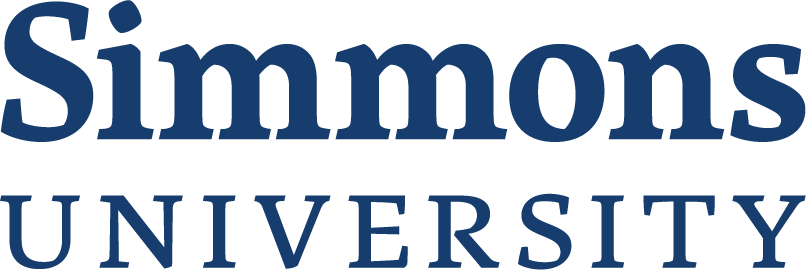Collections Conservator, Harvard Library, Cambridge MA
Posted July 31, 2013
Position Summary:
Collections Care is part of the preservation department of the Harvard Library. The primary responsibility of the Collections Conservator is to help manage a conservation program that ensures the longevity and usability of the Harvard Library’s extensive general and circulating research collections.
Under supervision of the Head, Collections Care, the incumbent works as part of the Collections Care management team to supervise daily operations of collections conservation in multiple laboratory locations, contributes to the development of conservation policies and implements those policies, determines conservation priorities, manages conservation projects, and ensures that Collections Care supports other critical Harvard Library objectives. The Collections Conservator contributes to the development of preservation policies, procedures, and guidelines throughout Harvard Library.
Duties and Responsiblities:
- Manages collections conservation activities at multiple lab locations, ensuring that treatment standards and protocols are met
- Works collaboratively across multiple libraries to promote collections conservation activities
- Establishes and oversees collections conservation workflows and treatments from Harvard Libraries (HL)
- Supervises 4.5 FTE conservation technician staff members
- Trains both laboratory staff and HL staff with other library responsibilities in the care and handling of library materials, identification of damaged materials, conservation techniques and procedures, collections emergency response protocols and techniques
- Performs a wide range of conservation treatments on general and circulating print materials
- Performs environmental monitoring
- Works skillfully with the Collections Care management team to ensure an integrated and well-functioning program
- Establishes priorities and achieves goals
- Plans, organizes, and directs workflow in a production setting
- Trains, supervises, motivates, and evaluates staff
- Encourages team work and staff development
- Plans and organizes collections care laboratory space
- Leads disaster planning and response activities for Harvard library collections
- Supports library collection emergency response at Harvard
- Serves on the Library Collections Emergency Team (LCET) and as a Preservation Liaison
Basic Qualifications
- Advanced training in conservation acquired through formal graduate studies or a combination of apprenticeship, advanced courses, and internships
- Minimum of five years of professional conservation experience
- Minimum of three years of personnel and program management responsibility in a large research library
Additional Qualifications
- MLS preferred but not required
- Demonstrated excellence performing conservation treatments in a production setting
- Broad general knowledge of library preservation, including library binding, reformatting, environmental control, disaster preparedness and response, and bibliographic control as it relates to collections conservation
- Knowledge of the history of book and paper making, bookbinding techniques, and the history and manufacture of other library materials; and the nature and causes of book and paper deterioration
- Working knowledge of chemistry as it applies to library materials
- Knowledge of and adherence to professional ethical practice in conservation
- Excellent oral and written communication skills, strong interpersonal and organizational skills, including demonstrated ability to prepare reports and procedural documentation
- Ability to initiate and adapt to change
- Strong analytical and problem solving skills
- Ability to work collaboratively and flexibly
- Communicate skillfully, both orally and in writing
- Knowledge of standard word processing, spreadsheet, and database software
- Experience with an integrated library system
Additional Information:
The Harvard Library
Setting a fresh course for the future of the Harvard Library, the University seeks to build a flagship research library that is positioned to excel in the rapidly evolving 21st-century information environment. The recommendation following an extensive 18-month library review was that Harvard restructure the organization, governance, and funding structures of the University library system to better serve the changing needs of the University. The Harvard Library will drive excellence and innovation in teaching, learning and scholarship by attracting and developing a community of talented professionals who actively shape the development and cultivation of knowledge and pedagogy at Harvard and within the broader scholarship community.
The new Harvard Library structure will:
- Maximize strategic capacity in the library system as a whole
- Harmonize management and library business processes
- Facilitate enhancements in collections and services
- Create a culture of continuous improvement and innovation in library operations and management
- Preserve appropriate local autonomy in collecting priorities and patron service levels
- Enhance accountability of the libraries to the Deans and the University
The University
Founded in 1636, Harvard University is preeminent among the world’s research universities. Harvard has grown from nine students with a single master to an enrollment of more than 6,600 undergraduate students, over 14,000 graduate students, and an additional 2,000 part-time students. Over 16,000 people work at Harvard, including approximately 2,100 faculty members. An additional 10,000 individuals have faculty appointments in Harvard-affiliated teaching hospitals.
Designated a university in 1780, Harvard includes 12 colleges and schools. The Faculty of Arts and Sciences–comprising Harvard College, the School of Engineering and Applied Science, the Graduate School of Arts and Sciences, and the Division of Continuing Education–is the oldest and largest of the Harvard faculties. The University’s world-renowned graduate and professional schools include Harvard Business School, Harvard Divinity School, Harvard Graduate School of Design, Harvard Graduate School of Education, Harvard Law School, Harvard Medical School (including the School of Dental Medicine), Harvard School of Public Health, Kennedy School of Government and Radcliffe Institute for Advanced Study.
In the course of 375 years, Harvard’s Library has grown from a single collection of 400 volumes to a 73-unit library system whose holdings include nearly 17 million volumes, more than 21 million digital files, 10 million microforms, 8 million photographs, and an estimated 400 million manuscript items.
For additional information visit the Harvard Library web site at: http://lib.harvard.edu/about-us
Apply Here: http://www.Click2Apply.net/858×295
